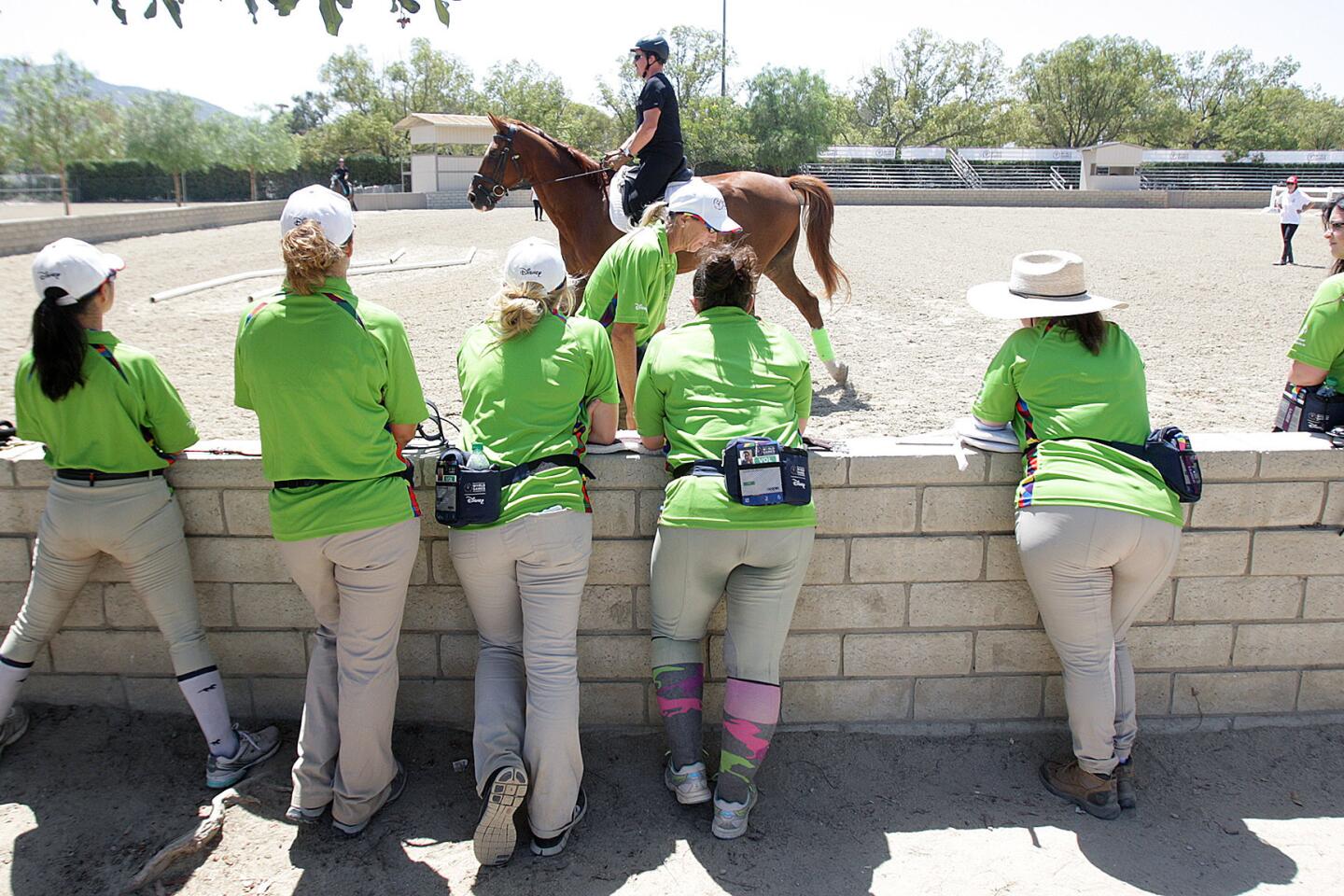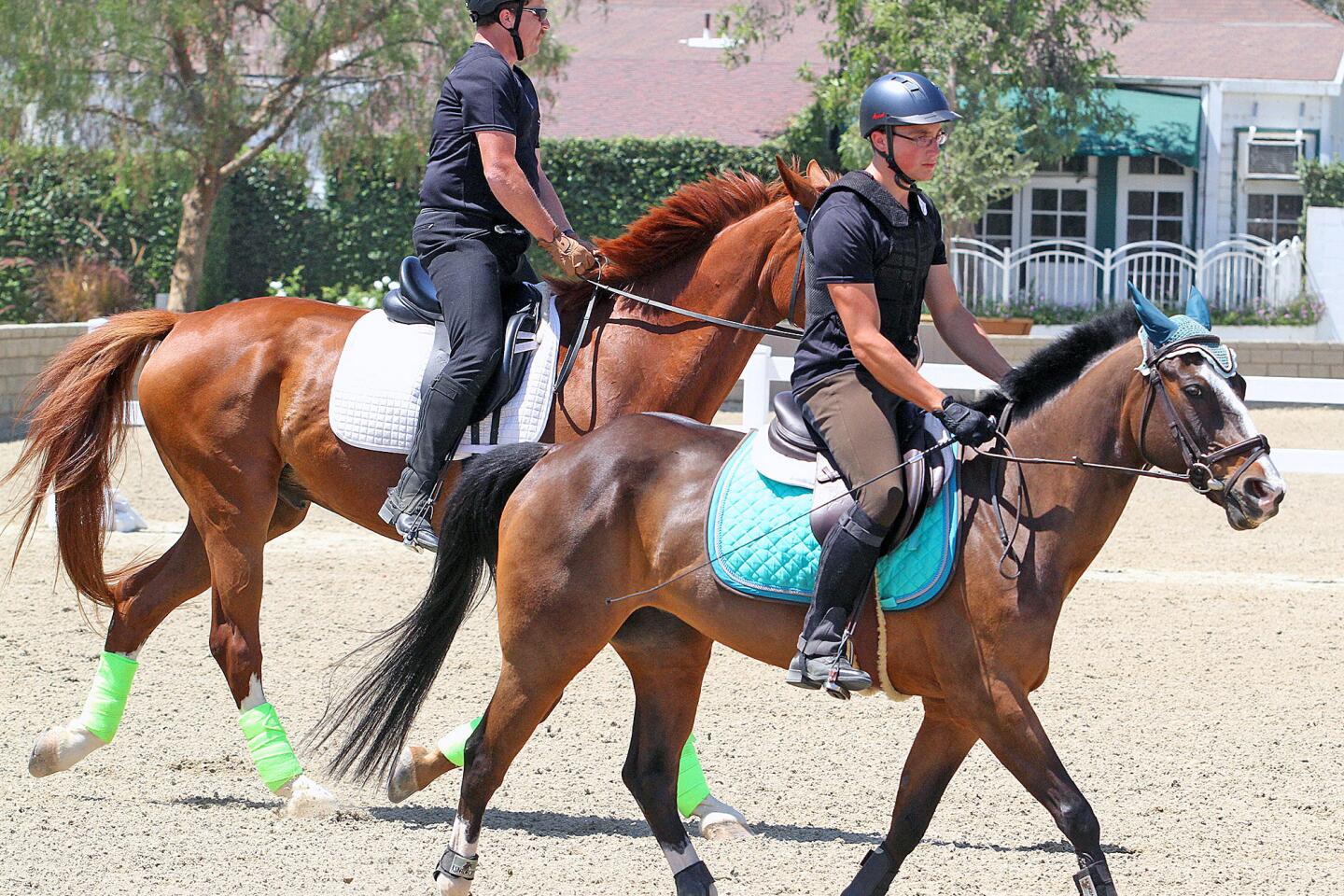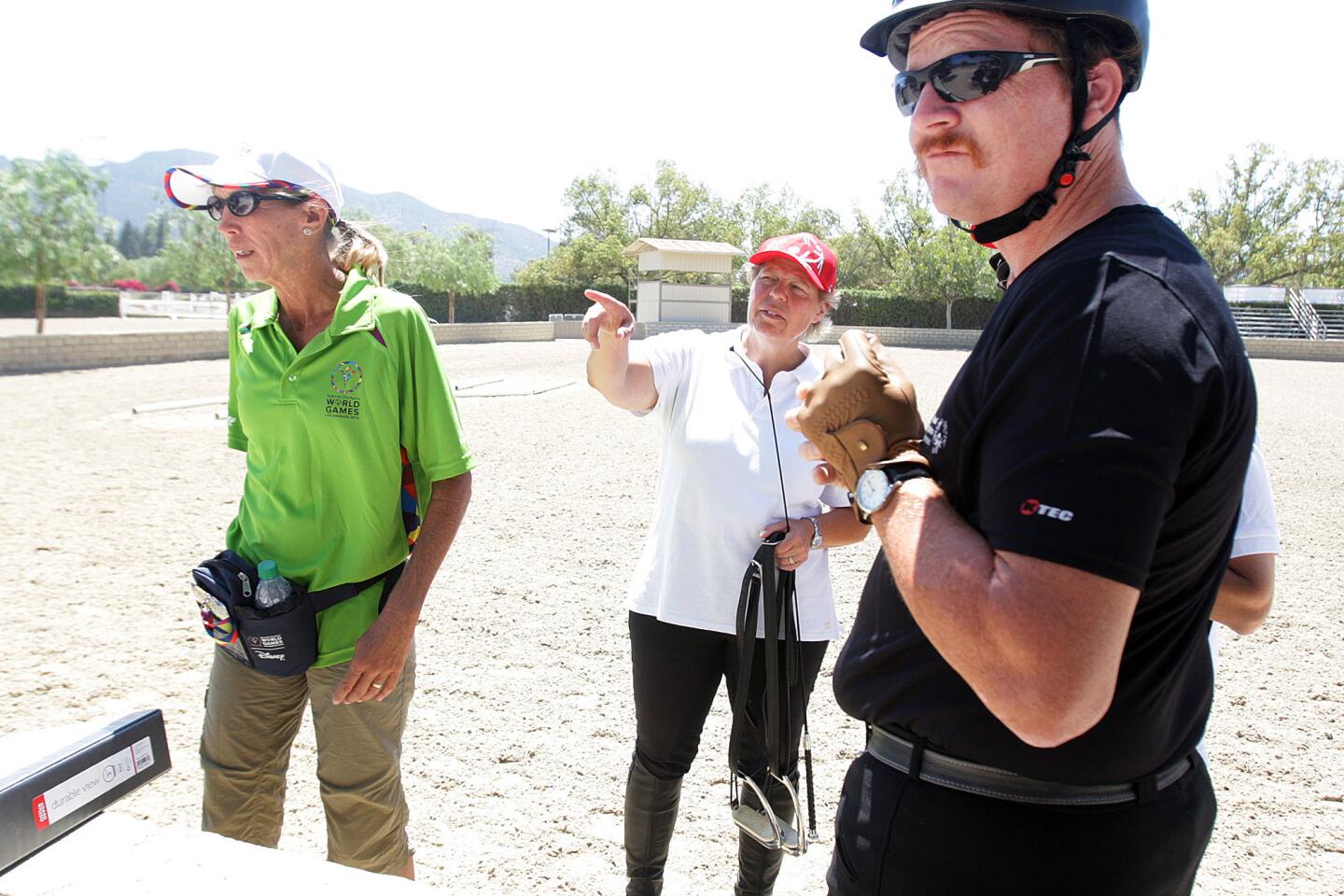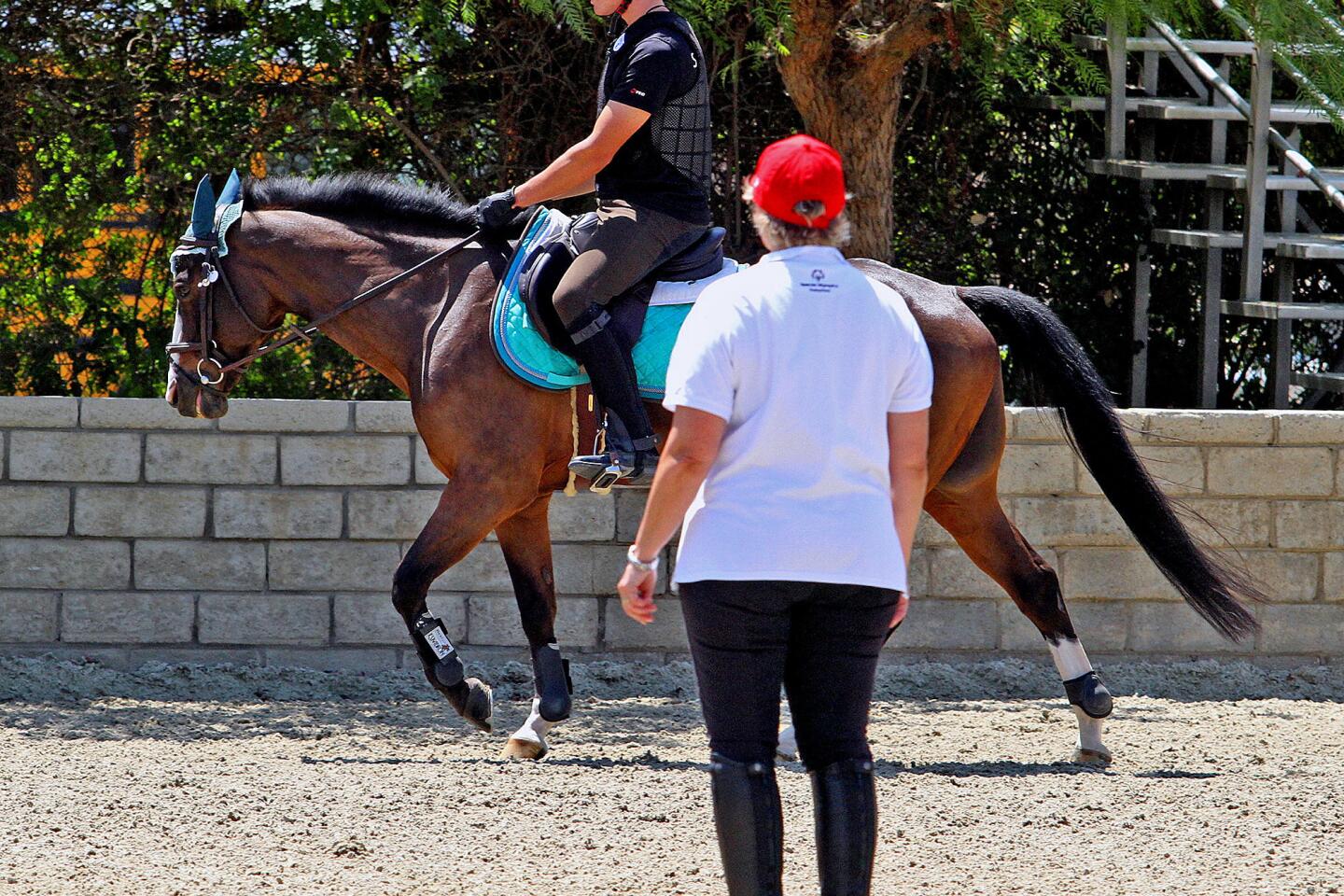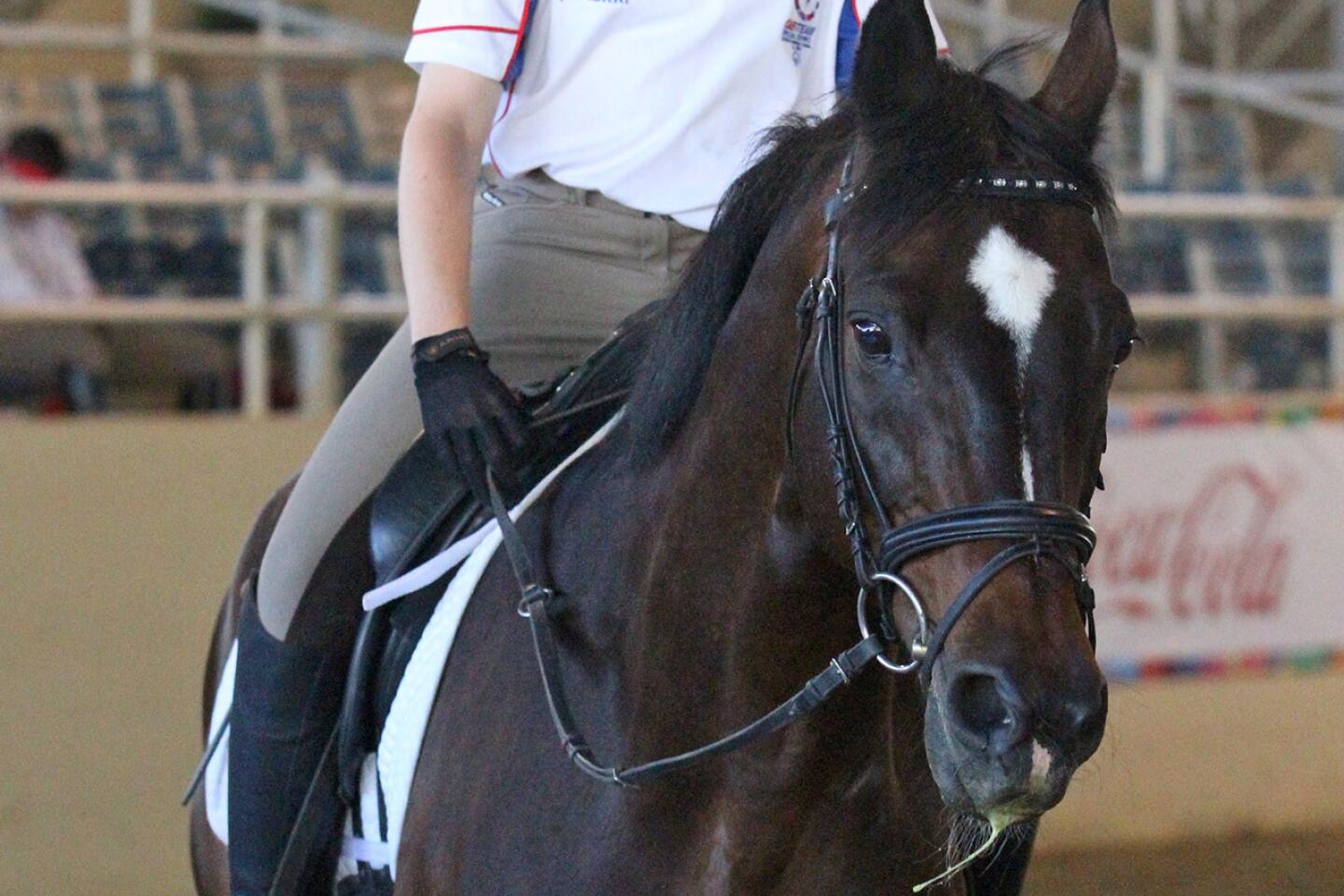Riders look for the perfect match in Burbank
His name is Ramazotti 75, but those who know Lehua Custer’s 19-year-old Swedish Warmblood affectionately call the bay horse Zotti.
Custer, a Burbank resident and dressage trainer, along with several members of Zotti’s “fan club” were in the stands under the Equidome at the Los Angeles Equestrian Center in Burbank Monday to watch him get paired with riders competing in the Special Olympics World Games this week.
PHOTOS: Equestrian athletes match up with horses for upcoming games
Four horse masters and their teams of volunteers matched 85 borrowed horses to more than 120 riders from 35 countries on Sunday and Monday in preparation for competitive events this week, factoring in the rider’s skills, size and coordination, among other things. Each horse was matched with up to two riders.
Though Zotti lives in Burbank, owners from San Diego, the Bay Area and even Phoenix provided horses for the events, which run Wednesday through Saturday morning, said Sara Jones, development director for Ride On Therapeutic Horsemanship, the Chatsworth-based nonprofit managing the equestrian events. The competitions are free and open to the public.
Zotti’s an experienced horse who’s “been there, done that,” Custer said, but his bigger movements are better suited for a more advanced rider. It’s also a challenge to keep him “round” and on the bit, she said.
He had been matched with a French rider earlier Monday, but in the afternoon he was one of the last horses on the arena floor being ridden by Great Britain’s Georgina Maton for a potential match, which from the stands seemed likely. But, Custer noted, Maton would have to consider what’s best for her — if she rejected Zotti, though, she’d be forced to take the second horse offered.
“Are we a match?” Custer shouted as Maton brought Zotti to a halt after about 20 minutes of putting him through his paces.
The answer shouted back from the arena floor: no, not a match. Maton’s team was considering her positioning and decided Zotti was too tiring for her to handle.
Zotti’s fans seemed disappointed. Alanna Flax-Clark of Grenada Hills first said she wanted to give Maton a “pep talk,” but realized it was too late; she’d made her choice. Later, Flax-Clark, a para-equestrian who is in a wheelchair, said she understood that Zotti can be a handful for a rider.
“He challenges me a lot,” she said. “But I like a challenge.”
Rejecting Zotti was not a decision Maton or her coaches took lightly, said Sarah Moreland, head coach of Great Britain’s team, but she added that they had little time to hem and haw.
“We’ve got a competition in two days’ time,” she said. “We have to match the very best scenario we can get.”
Zotti is “lovely ... but just not quite right” for Maton, Moreland said, adding that she needed a smoother-riding horse that is “less expressive” with his movements. She did go cold when they rejected him, though, knowing there was no going back. However, she said she was thankful that all the horse owners had provided high-quality animals for the athletes.
Riders each had a few minutes to acquaint themselves with their potential matches — just one of the challenges for athletes in a competition that depends on a relationship and the cooperation between rider and horse. Riding an unfamiliar horse could be difficult even for riders without intellectual disabilities, Moreland said.
Another challenge facing riders in the Special Olympics, all of whom have intellectual disabilities, is that they must memorize the equitation pattern — a course through obstacles such as barrels and poles for demonstrating horsemanship — and the dressage arena. They were allowed to walk through the patterns, Jones said, but on their own two feet and not with the horses.
Moreland, who coached Great Britain’s Special Olympics team at the games in Athens in 2011 and was honored by Queen Elizabeth that same year for her dedication to the sport, said riding teaches a variety of life skills, including communication, responsibility, accountability and safety. Horses are 600-kilogram (1,300-pound) animals, she said, “they’re to be respected.”
Maton said she’s been riding for about five years and while her learning disabilities sometimes make it hard to communicate with people, she finds it easier with horses.
“A horse doesn’t judge you,” Maton said. “It just teaches you.”


